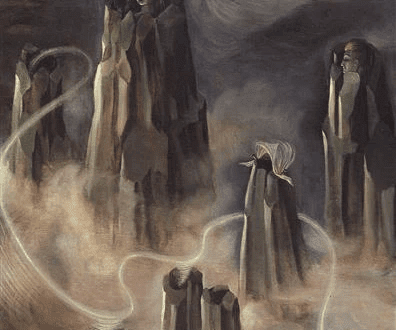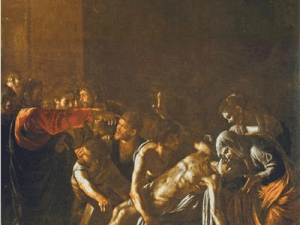Title of Artwork: “The Souls of the Mountain”

Artwork by Remedios Varo
Year Created 1938
Summary of The Souls of the Mountain
One of the rare paintings by Remedios Varo to be completed outside of Mexico is The Souls of the Mountains. It was created in Paris, in a world recently found by Varo, while the city was still under Nazi occupation, during his first years in the city. In essence, the picture gives us a window into the attitudes of the French bourgeoisie during World War II toward women in general and female artists in particular.
All About The Souls of the Mountain
In the artwork, the female protagonists are depicted as being enclosed within the stifling crust of the world, with nothing but fog and darkness to break their slumber. Varo’s depiction of the characters in this way recalls her sense of solitude and highlights the difficulties women faced in that age.
The mountains can be read both as phallic symbols and as a thick, stone-cold mask the artist wears to maintain her status in the male-dominated art industry of her day. Male artists of the time rarely gave female artists the respect they deserved, and many women struggled to make a living in the shadow of their male painter husbands or partners.
The painting’s cool, dark colour scheme was selected to reflect the protagonists’ desire for solitude and slumber while they try to break free. Varo’s unsure future and surroundings are represented by dark, neutral brushstrokes that evoke a misty haze.
Varo included the common surrealist technique of fumage—smoking the oil-painted canvas to heighten the foreboding mood—into this tableau. When using this method, the artist gave up some of his or her power over the painting and instead let the artist’s subconscious direct the smoke from a candle flame into the appropriate form and colour.
By erasing the imprint of the smoke in the canvas, soft patterns of clouds and mist were created, which served to counteract the mountains’ angular, domineering form.
The painting’s title suggests a life force whose freedom and right to be acknowledged are being denied by an oppressive system; the souls should be released from their confinement so that they can express themselves fully and without any restrictions from their surroundings, which in the artist’s case come from the patriarchal society.
Information Citations:
En.wikipedia.org, https://en.wikipedia.org/.
Recommend0 recommendationsPublished in Artworks







Responses